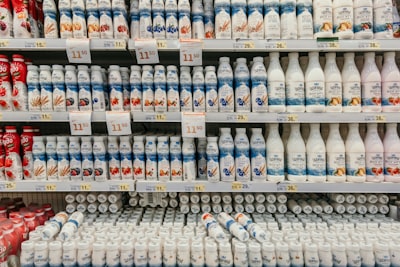The Baby Milk Cartel Scandal: More Than Just a Crime Story
The recent revelations about a RM120 million (S$36 million) baby milk supply cartel in Malaysia have shocked parents, policymakers, and consumers across the region. Beyond the headlines of seized assets and corrupt procurement, this case highlights growing concerns around food safety, regulatory oversight, government procurement scandals, and the shadowy side of the infant formula industry.
How Food Cartel Scandals Happen: Unpacking the Malaysian Case
Monopoly and Corruption in Government Procurement
Cases like the Malaysian baby milk scandal shine a light on how procurement systems meant to support public service can be hijacked. For 20 years, a single family-run company allegedly dominated supply tenders, often by collaborating with unrelated businesses—some from the furniture, electrical, and real estate sectors—to win lucrative contracts. This raises urgent questions:
- How can monopolies form in public tenders?
- What controls are in place to prevent conflicts of interest?
The Dangers of Substandard Infant Formula
The supply of substandard milk powder to government departments not only amounts to economic crime—it poses a direct threat to the health and nutrition of vulnerable infants. Subpar infant formula can have lasting impacts on child development, immune function, and general well-being. Outbreaks and product recalls in global markets (see the United States’ Abbott Nutrition recall) show how high the stakes are for ensuring safe, regulated infant formula supplies.
Tackling Food Supply Chain Corruption: Prevention and Solutions
Reforming the Tender System
Transparency in public tenders, strict auditing, and regular rotation of supplier lists are key recommendations from anti-corruption experts. In Malaysia and beyond, calls for:
- Centralized e-procurement platforms
- Independent oversight boards
- Whistleblower protections are gaining traction.
Strengthening Food Safety Regulations
Malaysia’s scandal revisits the need for stringent food safety enforcement—including independent lab testing, random supplier audits, and clear traceability from supplier to consumer. Parents, advocacy groups, and consumer watchdogs are demanding transparent supply chain information and public reporting by health authorities.
The Bigger Picture: Infant Formula Market in Southeast Asia
The incident in Malaysia isn’t isolated. Competitive, growing markets for infant formula across Southeast Asia have seen:
- Aggressive marketing by multinational and local brands
- Regulatory loopholes that allow entry of unverified suppliers
- A lack of harmonized cross-border food safety standards This environment can encourage unethical shortcuts and, in turn, jeopardize public trust.
What Can Parents and Consumers Do?
- Check for recalls and safety warnings issued by government health authorities.
- Buy from trusted retailers and ask for product certifications.
- Advocate for greater transparency by joining or supporting consumer rights groups.
FAQ: Malaysian Baby Milk Cartel and Food Supply Chain Corruption
What is a food cartel? A food cartel is a group or network of individuals and/or companies that collaborate to control supply, set prices, or win government tenders through collusion, often engaging in corrupt practices.
Why is the infant formula market vulnerable to corruption? High demand, government subsidies, and limited oversight make the industry attractive to unscrupulous actors seeking profit at the expense of quality and safety.
How is the Malaysian government responding? Authorities have seized assets, arrested key suspects, and pledged deeper investigations into procurement practices and supplier qualifications.
Conclusion: Restoring Trust in Infant Formula Supply
The Malaysian baby milk scandal is a powerful reminder that robust regulation, government transparency, and vigilant consumer advocacy are essential to protect the youngest and most vulnerable. As food supply scandals make global headlines, it’s time for coordinated actions across industries and borders to ensure safety and accountability.
Want to know more? See resources from WHO or Malaysia’s Ministry of Health for guidance on infant nutrition and product safety.

Comments
No comments yet. Be the first to comment!